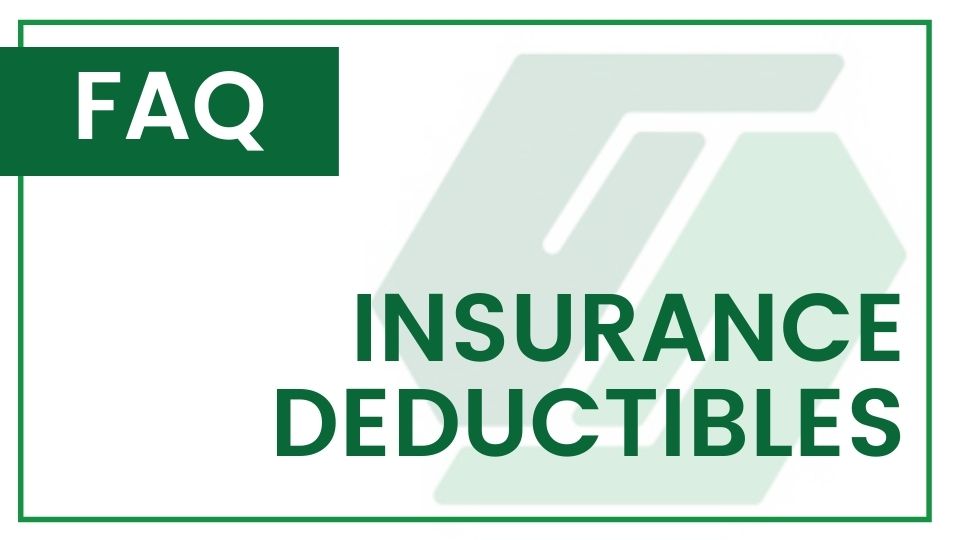Your insurance policy deductible is simply the amount you are responsible to pay in an incident that is covered by your insurance. In most situations that are covered by your insurance provider, you will need to pay the amount of your deductible before your insurance kicks in to cover up to your coverage limit.
As an example, let’s say your auto insurance policy deductible is $1,500 and you are in an accident that leads to $4000 in damages. If the incident is covered by your policy, you will need to pay the $1,500 and your insurance company would pay the remaining $2,500.
When it comes to your homeowners insurance deductible, your deductible applies to every claim you make. That means if you make two or more claims in the same policy period, you will need to pay that deductible for each claim you make. Every policy is different and it’s important you understand how your deductible works and what you are responsible for.
Understanding Your Homeowners Insurance Deductible
Video Transcription
“Everybody’s got a deductible on their policy. Years ago, a higher deductible saved a tremendous amount of money. So people carry 2, 3, 4, $5,000 deductibles. And what we’re seeing over the past couple years is that he savings has gone away. Most every single client of mine carries $1,000 deductible. If we look at increasing that to say $1500, or $2000, you might be lucky to save 50 or $100 per year. So if you’re carrying a higher deductible, with the thought that that’s going to save you or offset a tremendous amount of premium, likely it’s not. But you are taking on a much higher risk [for] when you do file a claim where you’re going to have to pay that two or $3,000 deductible. So again, contact your agent, understand where your deductible is, ask them to price out your policy with a $1000 or maybe a $1500 deductible, compare the costs and if the savings are pretty menial-Go with a lower deductible.”
Who Pays Deductible Given Michigan’s No-Fault Insurance Law?
In Michigan, with the no-fault auto insurance policy (and recent reform), you are more than likely responsible to pay your deductible for Medical and Wage Loss benefits. However, whether you have to pay for your colloision coverage dedutible will depend on if the auto accident was your fault or not.
With Michigan law, if you choose to have a deductible for accident related medical bills, then you will need to pay the deductible. However, your insurance provider must provide a reduced premium rate for this choice. The same goes for wage loss benefits.
If you have broad form or collision coverage, then you will have to pay the deductible if you are more than 50% at fault for the accident. If you have broad form or limited collision coverage, you DO NOT have to pay it if you are less than 50% at fault.


